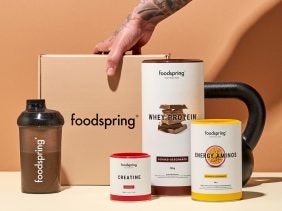3 Vegan Myths Debunked
More and more people are following vegan diets, but the myths still abound when it comes to veganism. Gather ’round and we’ll fill you in on the real facts behind the three biggest myths about vegan diets.
First things first. Vegan diets aren’t lacking in protein by default. And if you find that yours is, the solution couldn’t be easier – or tastier. Our Vegan Protein gives your muscles a healthy serving of protein that packs real plant power. Pea, hemp, rice, and sunflower protein: all the best, and only the best of the plant-based protein sources.
What is Veganism?
Veganism means abstaining from all animal products. Besides no longer consuming food from animal sources, some people also stop using all animal products, avoiding clothes or shoes made from animals – such as wool and leather – and makeup containing animal products (like honey or carmine red). Two of the main reasons to move towards veganism: Concern for animal welfare and a desire to reduce the negative environmental effects of raising animals for their meat. People also assume that a vegan diet is healthier. 600,000 people in the UK currently follow a vegan diet, and that number is growing. So it’s worth taking a moment to explain the reality behind the most widely spread myths about veganism.
Let’s Blast These 3 Vegan Myths
#1 Vegan Diets Have No Variety
Fruit, vegetables, legumes, nuts, seeds, & kernels: With all these options, veganism is anything but one-note! Shifting to a vegan diet does require a conscious change to your eating habits. When you shift to veganism, animal products like meat, milk, and cheese will be replaced by fresh produce, as well as nuts and seeds.
If you cook with a wide variety of plants, and make sure you eat lots of fresh fruit and vegetables, whole grains, good fats, and give your body enough plant-based protein, your vegan diet can cover all the shades of the rainbow – and the flavors, too.
Wondering what snacks you can grab when you’re on the go? Stock your bag up with a handful of our delicious Vegan Protein Bars and you’ll never need to worry. Each is packed with a different super-helpful food and its own unique flavor.
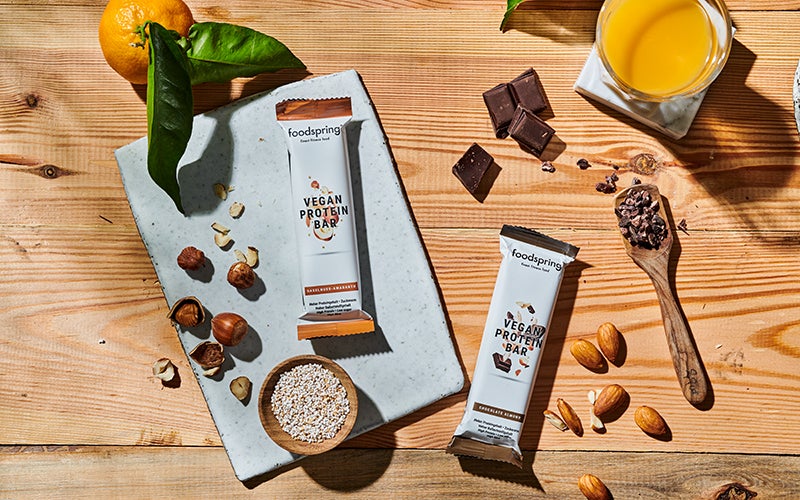
#2 Vegans Always End Up with Nutrient Deficiencies
This myth requires a slightly more nuanced debunking. Whether or not you get all the nutrients you need depends on how carefully you plan your diet. Because there is no one single, be-all and end-all vegan diet for everyone. That means a varied vegan diet can provide your body with all its essential micro- and macronutrients. Need some veganism inspo? We have more than 200 vegan recipes in our free recipe database. The hardest part is choosing which one to try out first!
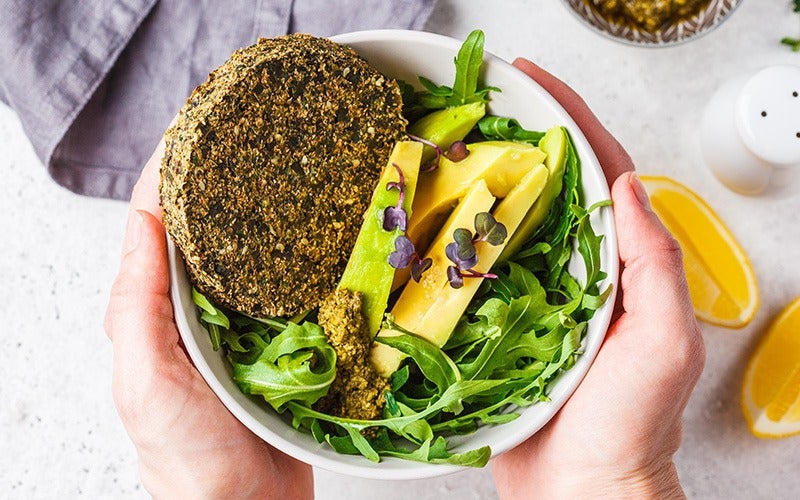
Nevertheless, there are a few nutrients whose main sources are animal-based foods. Wondering which nutrients you should pay special attention to when going for veganism? Here’s a brief overview:
Vitamin B12
Dietary vitamin B12 is found exclusively in foods from animal sources. So if you’re on a vegan diet, vitamin B12 supplements are a must. The good news: Our Daily Vitamins cover 100% of your recommended B12 needs, and more! They’re so simple to take, making them perfect even when your life gets busy.
Omega-3 Fatty Acids
Omega-3s are essential fatty acids and have an important influence on your physical and mental well-being. Your body can’t produce them on its own, meaning you can only get them from your diet. There are three different types of omega-3 fatty acids. Two of them can only be found in foods from animal sources. But another source of omega-3 fatty acids that fits in with veganism is algae.
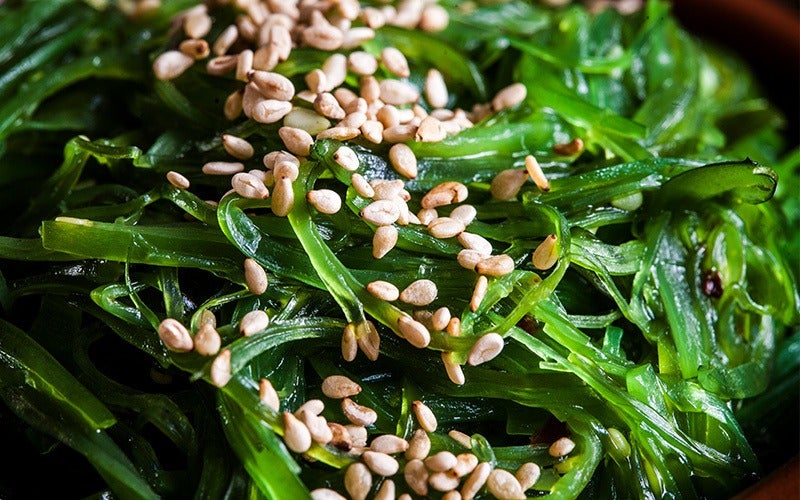
Can’t fathom the extra stress of keeping up with your omega-3 intake? Our Omega-3 Capsules contain essential fatty acids sourced directly from sea plants in a capsule that makes them a snap to add to your daily life. Fish-free and gelatin-free: Totally veganism-compatible.
Iodine
Iodine is a critical nutrient for everyone, not just vegans. Unfortunately, many Western diets don’t generally include foods containing iodine, such as salt-water fish and algae. An easy way to make sure you get this nutrient? Make sure you’re using iodized table salt when you season your food.
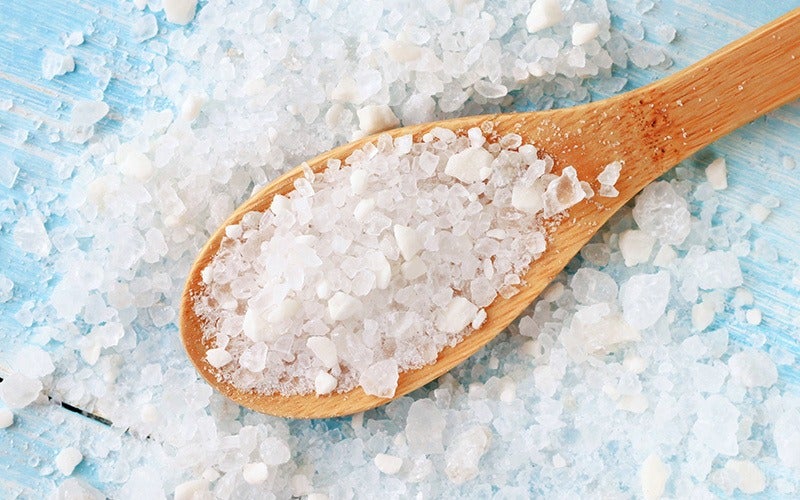
Calcium
People usually get their calcium from milk and dairy products, but it can also be found in plant-based foods. As long as your veganism includes keeping a balanced diet, you’ll rarely need to worry about your calcium supply. Here’s a fun fact: A handful of almonds provides you with about 80 milligrams of calcium.
Iron
We all know red meat is a good source of iron. But how can veganism still hit your iron supply needs?
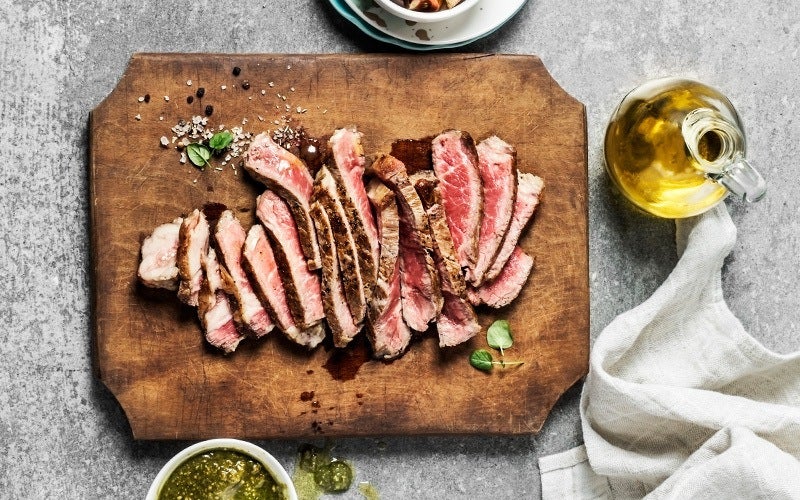
As long as your balanced vegan diet includes green vegetables, nuts, grains, and legumes, you will get enough iron.
Think about this: 100 grams of oatmeal contains about six milligrams of iron. Supercharge it: Top that oatmeal with fresh fruit or berries. The vitamin C they contain helps your body absorb the iron more effectively.
Vitamin D
Regardless of whether you’re vegan or not, your vitamin D supply is probably sub-optimal, especially in winter, says a study from the NHS. It’s almost impossible to get your vitamin D requirement from a balanced diet alone: Your body produces it internally when it gets sun exposure. The NHS recommends getting 15 minutes of sunlight on your face, lower legs, and arms – uncovered and without sunscreen – two to three times a week. But in winter, some latitudes don’t even get the right kind of sun rays. We’ve got you covered with our Daily Vitamins, though. Two capsules a day and you’re good to go on everything your body needs, including vitamin D!
Protein
As long as you rely on a variety of plant-based protein sources, you don’t have to worry about getting enough protein. Want to know more about the best vegan protein sources? Check out our article on plant-based protein!
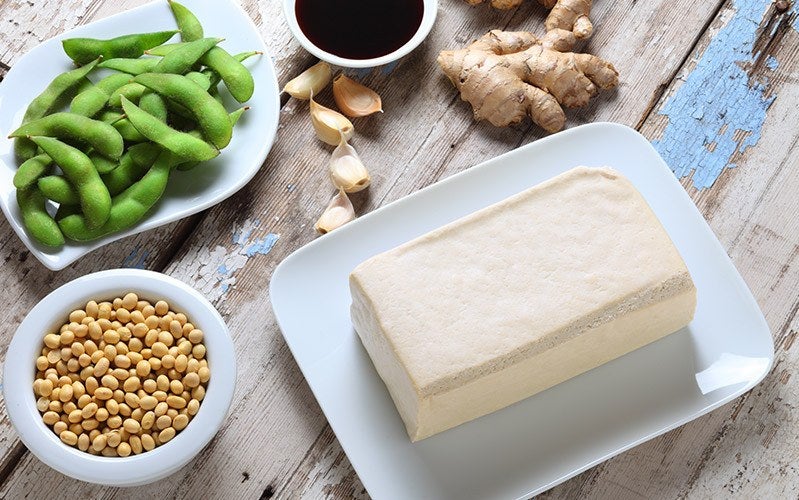
But you should also remember that even a conventional omnivorous diet can hide nutrient deficiencies. Ask your doctor or health provider for regular check-ups to make sure your micronutrient balance is where it needs to be.
#3 A Vegan Diet Won’t Stand Up Against Your Fitness Goals
Studies show that a vegan diet may be associated with a lower intake of calories.² When cheese is off the snacking menu and there’s no more meat to fill up sandwiches, vegan diets often turn to fruits and vegetables, which usually provide fewer calories. That’s why a vegan diet is often associated with vegan weight loss. But it doesn’t have to be the case!
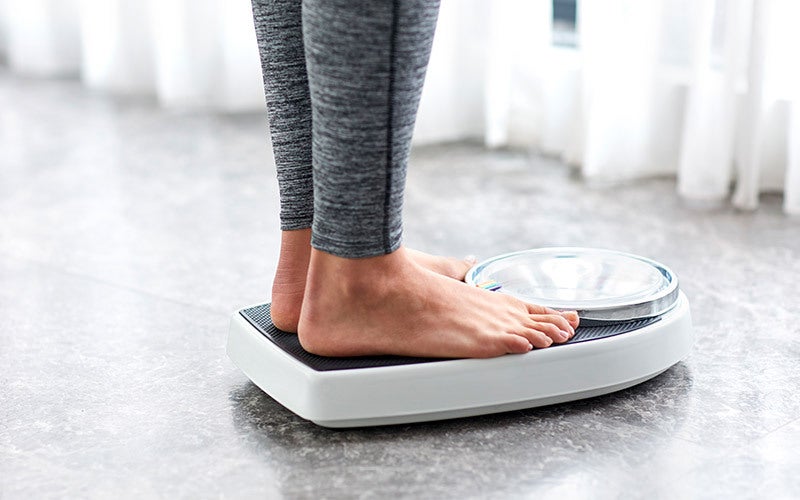
Whether you lose or gain weight on a vegan diet ultimately depends on how many calories you consume. Regardless of diet, we recommend a moderate calorie deficit of 200 to 400 calories if you want to lose weight (with or without veganism), and a moderate calorie surplus if you want to gain weight with veganism.
More healthy living reads from foodspring:
- 8 Vegan Comfort Food Recipes for Gray Days
- High-Protein Vegan Foods for Your Plant-Based Lifestyle
- Get Ready: Your 7-Day Eating Vegan Challenge Starts Now!
- No animals were harmed in the making of this body: How does vegan muscle building work?
Sources for this article
We at foodspring use only high-quality sources, including peer-reviewed studies, to support the facts within our articles. Read our editorial policy to learn more about how we fact-check and keep our content accurate, reliable, and trustworthy.
- ¹ NHS Rotherham Clinical Commissioning Group (2016): “Vitamin D: All You need to know”, at: http://www.rotherhamccg.nhs.uk/Downloads/Top%20Tips%20and%20Therapeutic%20Guidelines/Therapeutic%20guidelines/Rotherham-CCG-vitamin-D-Sept-2016.pdf (accessed: 07.02.2020).
- ² Benatar JR, Stewart RAH (2018): “Cardiometabolic risk factors in vegans; A meta-analysis of observational studies”, in: PLoS. 13 (12).









